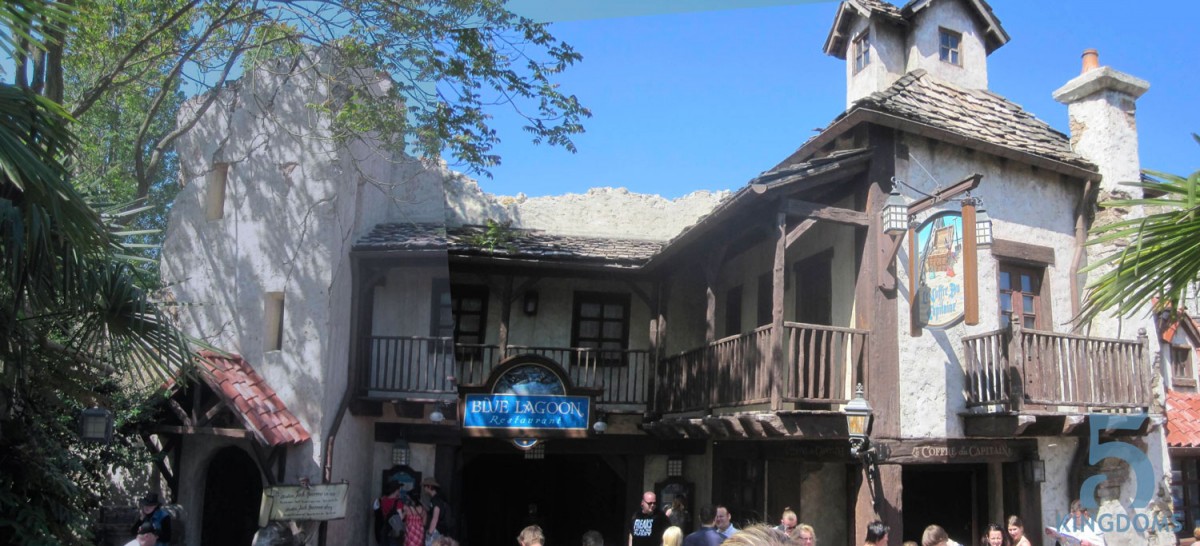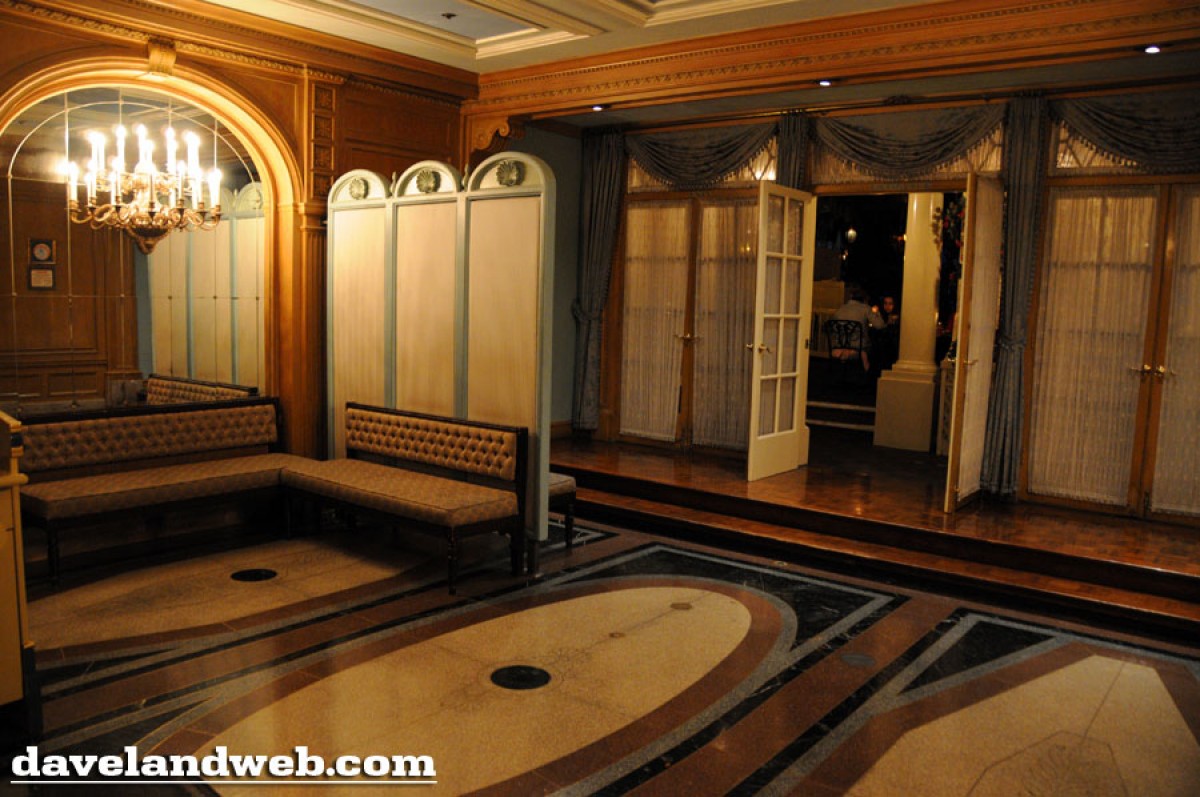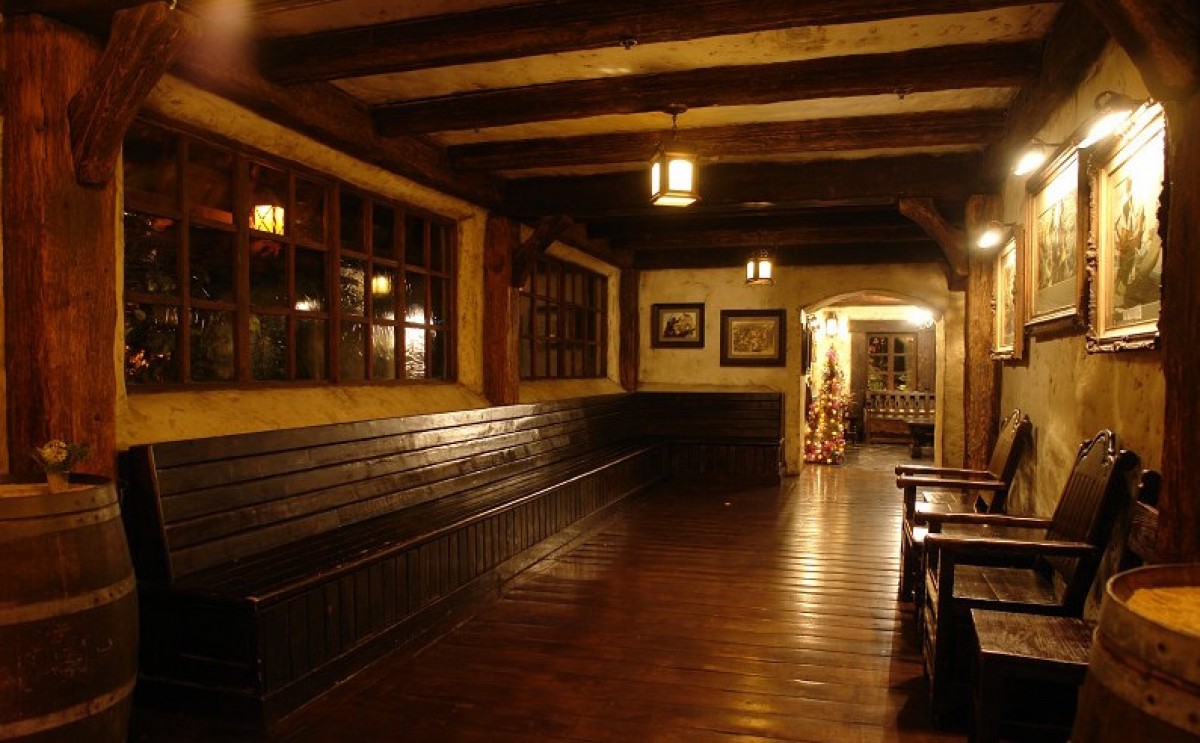2 Blue Bayou and 1 Blue Lagoon
It may bear a shy and modest entrance, but its riverside decor wows dining guests as well as simple pirates enthusiasts. Cajun food and quiet atmosphere made it famous in two continents, while Caribbean cuisine and explorer’s mood made the last location unique. There is no more famous Disney restaurant in the Kingdoms – this article is about the 3 Blue Bayou type restaurants of the 6 Magic Kingdoms !
8 months after New Orleans Square opened, along came only the second full service restaurant in Disneyland. It opened in 1967 being the first restaurant ever built inside an E-ticket attraction. If Anaheim Disneylanders had to wait 12 years, Tokyo residents had not to wait a day for their Blue Bayou opened right at Tokyo’s Disneyland’s opening in 1983, just like Disneyland Paris’ Blue Lagoon in 1992.

Blue Bayou’s theme was to reprise urban New Orleans on its outdoor narrow facade and entrance, while the interior was set to immerse the guests in a colonial riverside mansion’s garden. There, lunch and dinner are taken at night, along the sound of a peaceful, yet intriguing river. The innovation was to include guests as part of the dining area decor. Since its opening, Blue Bayou in the original Kingdom has become the adult reference for Disney quiet and chic. Notoriety of its Le Special de Monte Cristo signature meal reaches way beyond Disneyland’s berm.
As for theme differences, outside, Anaheim and Tokyo are very similar except for the French Quarter style balcony which reaches around the corner in California. Other than that the facade, and up to the ironwork and color scheme is identical on each side of the Pacific. The interior is very close as well, the colonnaded facade of a Louisiana mansion protects the few dozen small intimate round tables that stretch to the river. Nighttime atmosphere seems only to be lit by the dangling lanterns and table candles. Those may provide the coziest dining experience encountered in the Kingdoms, a dining experience unfortunately no pictures can give justice to.


Now how do you build a bayou in a park deprived of any New Orleans references? You change the theme.
In Paris, the Blue Lagoon’s first similarity with its older counterparts is the Pirates of the Caribbean’s adjacent attraction after which it has been dutifully themed. The second and last resemblance is the modest outdoor/luxuriant indoor ratio.
From the outside, the Blue Lagoon looks like an old Port Royal house dwarfed by a rocky terrain, but from the inside, it is the luxuriant multilevel beach, covered by scattered tables, pickets and terraces built with after-the-storms remainders. Think Swiss Family Robinson Treehouse meets Pirates of the Caribbean.

From this adventure theme, comes a totally different atmosphere : more family, more noise, more fun and of course less coziness. This results in the Paris’ Pirates riding guest being a little bit more daring when shouting the so French ‘Bon Appetit !’
One last detail about the theme : as the Blue Bayou patrons usually sit on 18th century benches in a narrow upscale waiting area, Blue Lagoon’s benches sit right against the rock in an underground-like area filled with old canons and piratey artifacts. Again, both adventurers and peace seekers know which venue to pick.


Shanghai Disneyland’s very own Treasure Cove does hold a restaurant adjancent to its Pirates of the Caribbean Battle of the Sunken Treasure from which you can wave at guests skimming away to their privateer adventure. But it is counter service and is called Barbossa’s County, which doesn’t reveal a clear intent from Imagineers to build a Blue Bayou counterpart in Shanghai.
That beeing written, If you’ve been to Shanghai Disneyland and think its Barbossa’s Bounty should be included in this entry, let me know in the comments.
Was only able to guess, with the help of James Malin the name of Tokyo Disneyland’s New Orleans’ street as Royal Street.
-
Snow White Sanctum
